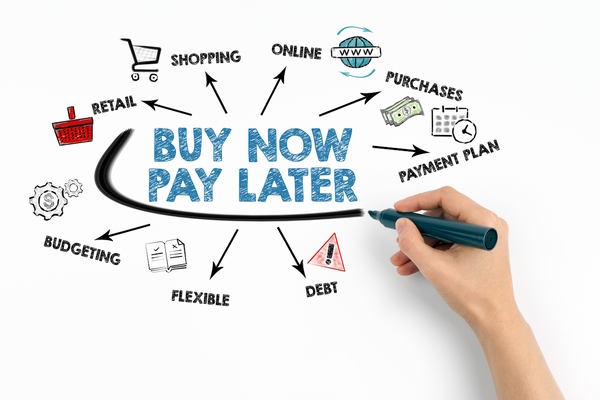CEO wellbeing and the value of a healthy work-life balance

Geoff Lawrence at Vistage discuss the challenges CEOs encounter when trying to look after their personal wellbeing whilst also being responsible for the ultimate success or failure of a company
In today’s volatile business market, CEOs are expected to be almost superhuman, as they balance an infinite number of responsibilities. This can often result in huge amounts of stress, fatigue and anxiety.
CEOs are accountable for the ultimate success or failure of a business, and despite the demands of stakeholders or unpredictable market challenges, they are still expected to make the right managerial decisions.
Ultimately, the pressure of always being in control can be taxing. So how can CEOs be better supported to ensure a healthy balance between work and their personal lives?
For many in senior leadership positions, the last couple of years in particular have resulted in mental health struggles significantly impacting managerial performance. This has led to the wellbeing of CEOs having been neglected.
A recent study by Horton International indicated that C-suite executives experience more mental health issues compared to their employees, with fatigue and stress being key factors.
These external factors are unlikely to change. However, there are attainable ways to manage and reduce this stress.
Finding a balance
As a CEO, it can be easy to fall into the trap of overworking to present a lead-by-example model for employees, but creating a culture of long hours ultimately results in burnout. If you want to continue operating at a high-performance level without errors taking place, your well-being must become a priority.
Despite the notion that CEOs must always be on the ball, they don’t possess an infinite amount of energy. It’s true that traits such as stamina and resilience are what propel business leaders to the top. But being able to know when you need a break, and how to best conserve your energy is essential in safeguarding your mental health.
There is a perception that CEOs having a work-life balance is a myth, with 90% of CEOs saying that they lose sleep due to their fear of failure. Although the hours can be long with the mounting stress and uncertainty part of the job, the role should never cost you your health or sanity.
There is no one size fits all solution for finding a work-life balance but there are tactics to help you overcome the challenges of being a CEO. Once you have come to the realisation that your mental health is a priority, you can start putting a plan in place to improve and then maintain a healthy work-life balance.
Self-care habits are absolutely vital for the CEO’s overall well-being, and none more so than being able to set boundaries. An advantage to being a CEO is the ability to dictate your own schedule as you only have to answer to yourself. Use this to your benefit and set strict personal work-life boundaries as aforementioned, being in a constant stay work mode only leads to burnout.
Again, set a plan in place and schedule time for work, exercise, time off, etc. and stick to them. That way you create good habits.
Taking a break
Qualities such as multitasking and hyper-vigilant planners are often associated with great leaders, but they contribute to the stress levels CEOs experience day-to-day. This can leave business leaders ill-equipped to handle the responsibilities of their role effectively, and fail to manage teams well.
However, the need to alleviate stress and achieve better mental wellness has never been greater, as taking a break has proven to increase workplace productivity by up to 80%. This can ultimately lead to CEOs returning to work and feeling revitalised and rejuvenated.
As a result, regular exercise and balanced nutrition will help aid the leader of a company to perform to the peak of their powers. Whether that is an intense two-hour gym session or a 30-minute walk, exercise can improve memory and cognitive function, promotes better sleep, and reduces stress.
An unbalanced diet can lead to exhaustion and bad decision making, all contributing to downfall of one’s mental health. It’s important to be mindful of your eating habits, because if you’re missing meals to get work done or feeling fatigued after certain foods, then plan out lunch breaks and observe which foods aren’t good for your diet.
Combating loneliness
As a result of fatigue and stress, leaders can also feel the need to look strong and positive amongst employees, but this often results in loneliness. It can often feel lonely at the top as it’s not easy to find people to share your burden with.
Whether the issue is a personal or professional one, a lack of confidence can begin to set in and make business leaders feel like they might not be able to fulfil their own expectations of themselves. However, at moments such as those, leaders work best when they are team builders and are able to foster a culture of togetherness from the top down.
To combat this, every CEO should have access to appropriate support in the form of a mentor, coach or peer group. Business leaders need an experienced professional in their role to offer guidance as they strive for success and aim to avoid mistakes.
Investing in a mentor is one of the most valuable decisions you can make as they can support you through the process of becoming a better leader by offering alternative perspectives, tapping into your strengths and the parts of your personality that will serve you best in your role.
For these reasons, having a mentor could make all the difference in the long-term success of a business.
Influencing work-life balance within the workforce
Once you’ve taken onboard the above insights, the next step is to see how you can positively influence the mental health of your employees. If CEOs are able to create an environment where open conversations around mental health can take place this may enable employees to share experiences and feel supported.
This can be shown through training initiatives around prioritising mental health and promoting self-care. Business leaders must understand that the biggest asset at every company is its workforce, so prioritising their self-care and wellbeing, at every level throughout the business structure, becomes vital.
A CEO’s wellbeing is imperative in order to run a company at its optimum level. By utilising the insights and tactics shared above, business leaders can improve and maintain their mental health in the long run, ultimately relieving the fatigue, stress and loneliness that had previously burdened them. It’s widely considered that the mental wellness of an organisation is a reflection of the mental health of its CEO.
Be patient and take the time to cultivate a happier efficient version of yourself, and see the positive effects of your efforts funnel down into your workforce.
Geoff Lawrence is Managing Director of Vistage UK
Main image courtesy of iStockPhoto.com

Business Reporter Team
Most Viewed
Winston House, 3rd Floor, Units 306-309, 2-4 Dollis Park, London, N3 1HF
23-29 Hendon Lane, London, N3 1RT
020 8349 4363
© 2025, Lyonsdown Limited. Business Reporter® is a registered trademark of Lyonsdown Ltd. VAT registration number: 830519543





